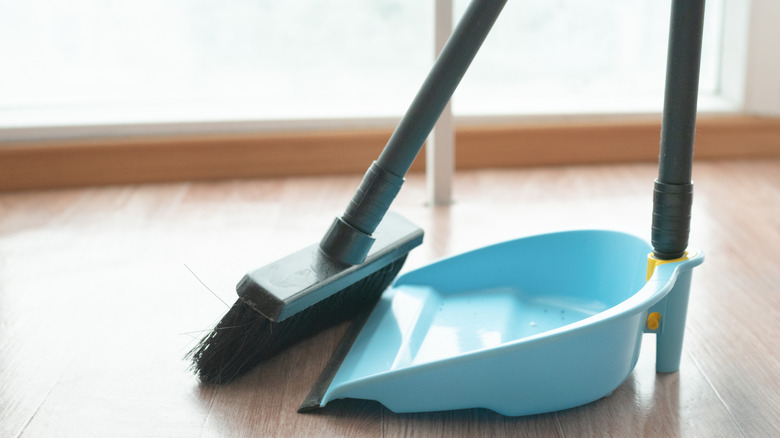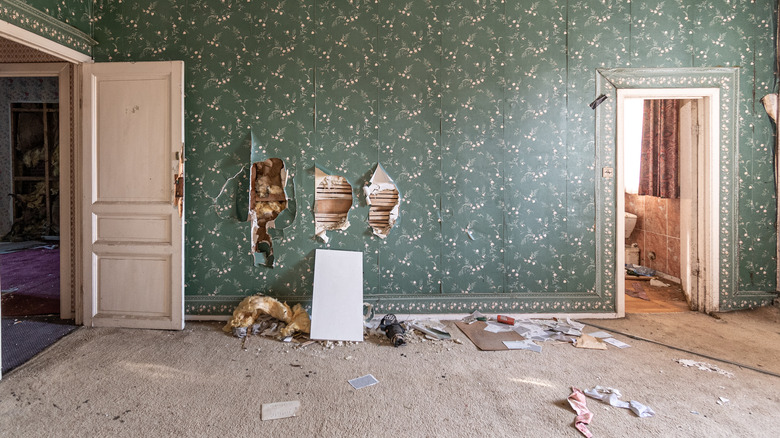What Does The 'Broom Clean' Condition In Your Lease Mean?
When renting a property of any type, reading the full lease and understanding each requirement is critical and not something to put off until it's time to move in (or out.) There are various components and terms found in these leases, including the amount of rent due, when it's due, the lease term, and any late fees applied, as noted by FindLaw. Many rental agreements also put in place specific details about how the tenant must maintain the property, such as how to keep it clean and even what types of damage the tenant may be responsible for repairing.
Many times, rental property owners expect the tenant to keep the property in a livable condition. After all, this protects their investment in the property. For those that are moving out, then, it's time to consider just how clean and tidy the property is. You may notice the term "broom clean" in your lease indicating the condition of the property when you turn over the keys. What does that really mean, though?
Keeping it clean – broom clean
Broom clean is not an uncommon component of a lease agreement, often referring to the condition the property must be in when a person moves out and is no longer leasing. Century 21 shares that this means the property needs to have all personal items removed from the property. It also means the property's floors should be swept clean. That may mean that the property needs to have all of your belongings removed and be in overall clean condition before leaving.
Broom clean doesn't always mean, though, that the tenant has to scrub down the walls or remove any blemishes from the stove. While it should be clean and tidy, it doesn't have to be perfect in every situation, since wear and tear may be expected. Also notable, any items that belong to the property itself, such as extra window screens in the closet or vacuums provided by the property owner, can remain in the home and do not need to be removed.
What happens if you don't clean up or clean up enough?
In the ideal situation, property renters leave the property in the same condition they found it when they moved in. Yet, every home experiences wear and tear over time, and some of those upgrades are the responsibility of the property owner or landlord rather than the renter. Still, meeting the lease's obligations for keeping the home clean and orderly is a must.
What happens if you don't remove all the trash or leave behind a bed you can no longer use? When this happens, it could mean the landlord has to then clean up and clean out the property. As a result, they may deduct the cost of cleaning the area from the deposit you placed on the property at the start of your lease, as noted by Nolo. In other words, if the property owner or landlord has to clean the property and remove debris, it may cost you some or all of your deposit. That's why it's critical to know what your rental agreement states.


